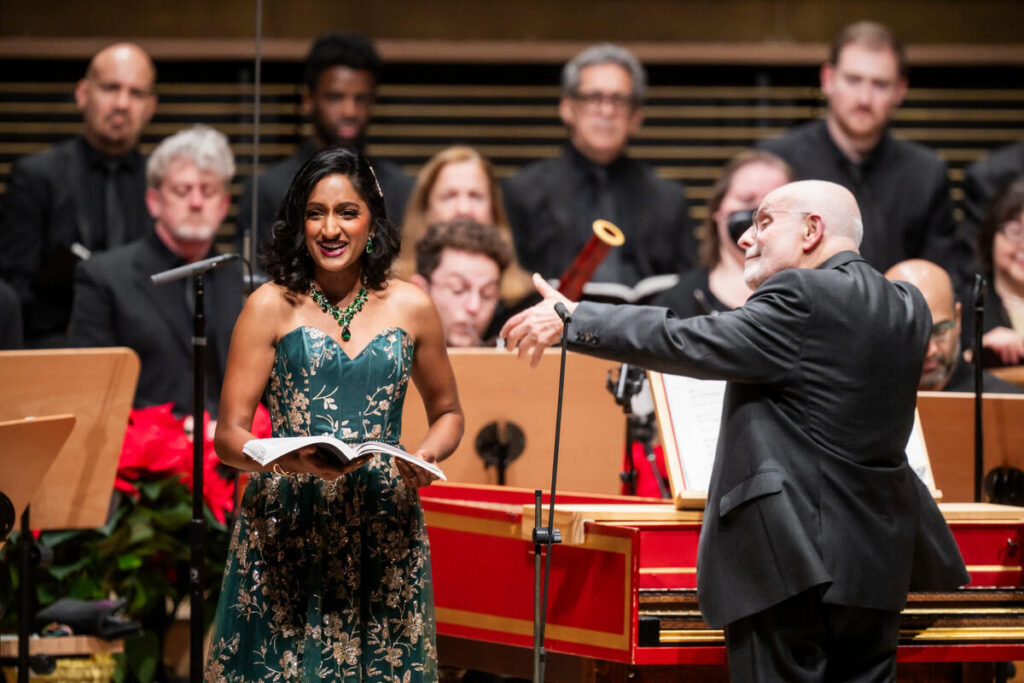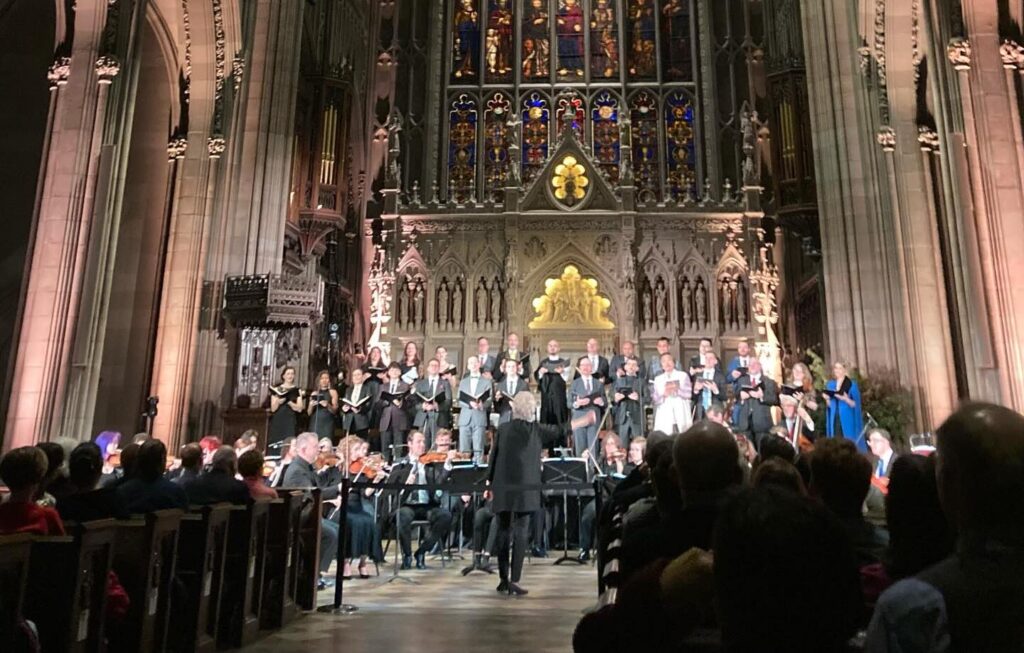VIEWPOINTS – HANDEL’S MESSIAH, two-ways: Assessing New York Philharmonic’s spirited rendition beside Trinity Church’s urgent take on the beloved oratorio
- By drediman
- December 17, 2024
- No Comments
This past weekend, I had the opportunity to compare, side-by-side, arguably two of New York’s premiere presentations of Handel’s Messiah. As always, read on below for my thoughts on these two very different interpretations of the beloved oratorio.

HANDEL’S MESSIAH
New York Philharmonic / Musica Sacra
In keeping with tradition, the New York Philharmonic has once again programmed Handel’s Messiah (RECOMMENDED) for the holiday season. Led with color and warmth by 18th century music specialist Ton Koopman on the harpsichord, the performance was spirited on all accounts — of note was the straightforward yet elegant playing by the orchestra’s string section, particularly vibrant in the hall’s noticeably improved acoustics — and there was a true sense of communion amongst the players, which at times can be lost in the performance of warhorses like Handel’s ubiquitous three-part oratorio. Despite the beauty of the music-making, there was an odd lack of suspense in Koopman’s sprightly-paced interpretation. Any sense of drama was brought by this year’s excellent lineup of principal soloists — soprano Maya Khenrani, countertenor Maarten Engeltjes, tenor Kieran White, and bass-baritone Klaus Mertens — as well as the magnificent Musica Sacra under the guidance of chorus director Kent Tritle. Especially moving were Engeltjes (an affectingly plaintive rendition of “He was despised and rejected of men”) and Mertens (a trenchant but beautifully toned “The trumpet shall sound”). A tad less impactful were Khenrani and White, whose performances more than serviceable if not quite at the same level.

HANDEL’S MESSIAH
Trinity Baroque Orchestra / Trinity Choir / Trinity Youth Chorus
On the other hand, down at Trinity Church Wall Street, you’ll find a rendition of Handel’s Messiah (HIGHLY RECOMMENDED), which continues to be charged with urgency and vitality. Indeed, for those of you who think that Messiah falls in the category of safe but dull Christmastime programming, I beg you to experience Trinity’s version of the 1741 oratorio. As conducted by the great Baroque specialist Jane Glover, Friday’s closing performance traded in the typically respectful handling of the beloved choral work with an emotionally immediate and immersive communal experience. Throughout, the performance was vital and infused with palpable humanity. Even the famous “Hallelujah” chorus — although well earned — seemed just a component of the overall human drama of the piece rather than an anticipated showstopper. Although the unavoidable church acoustics somewhat dulled the gorgeous, deeply felt music-making, they also added a resonance to the performance that’s unique to Trinity Wall Street’s version. Like Lang’s The Little Match Girl Passion, the performance struck a note of real transcendence, inspiring both listener and performer — in an ingenious dramaturgical choice, the oratorio’s soloists are culled from the chorus — into collective introspection. Indeed, beyond merely sounding lucid and pretty, this Messiah actively engages the soul, seeking to transform through the shared experience it cultivates.

 Copyright © 2024
Copyright © 2024
Leave a Reply